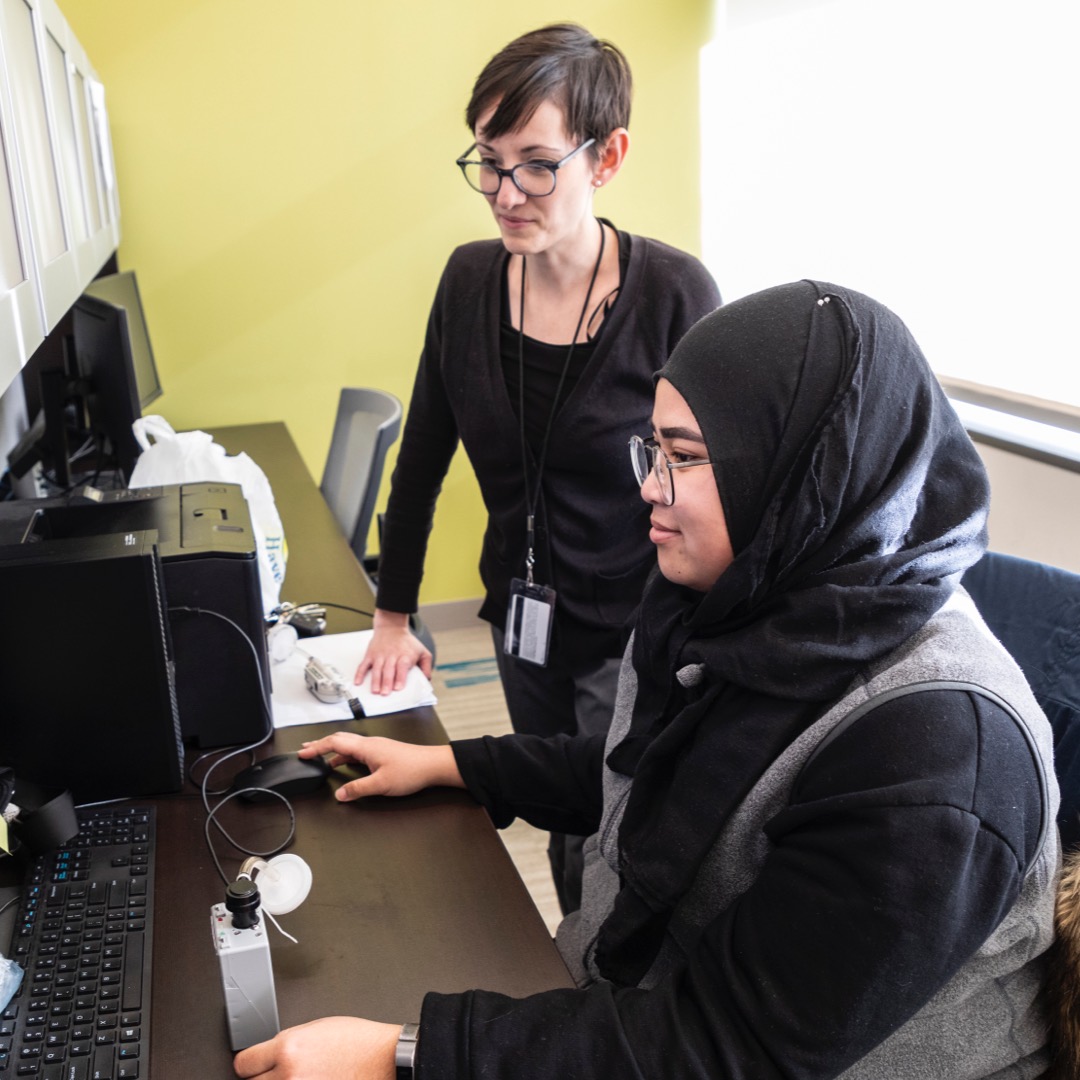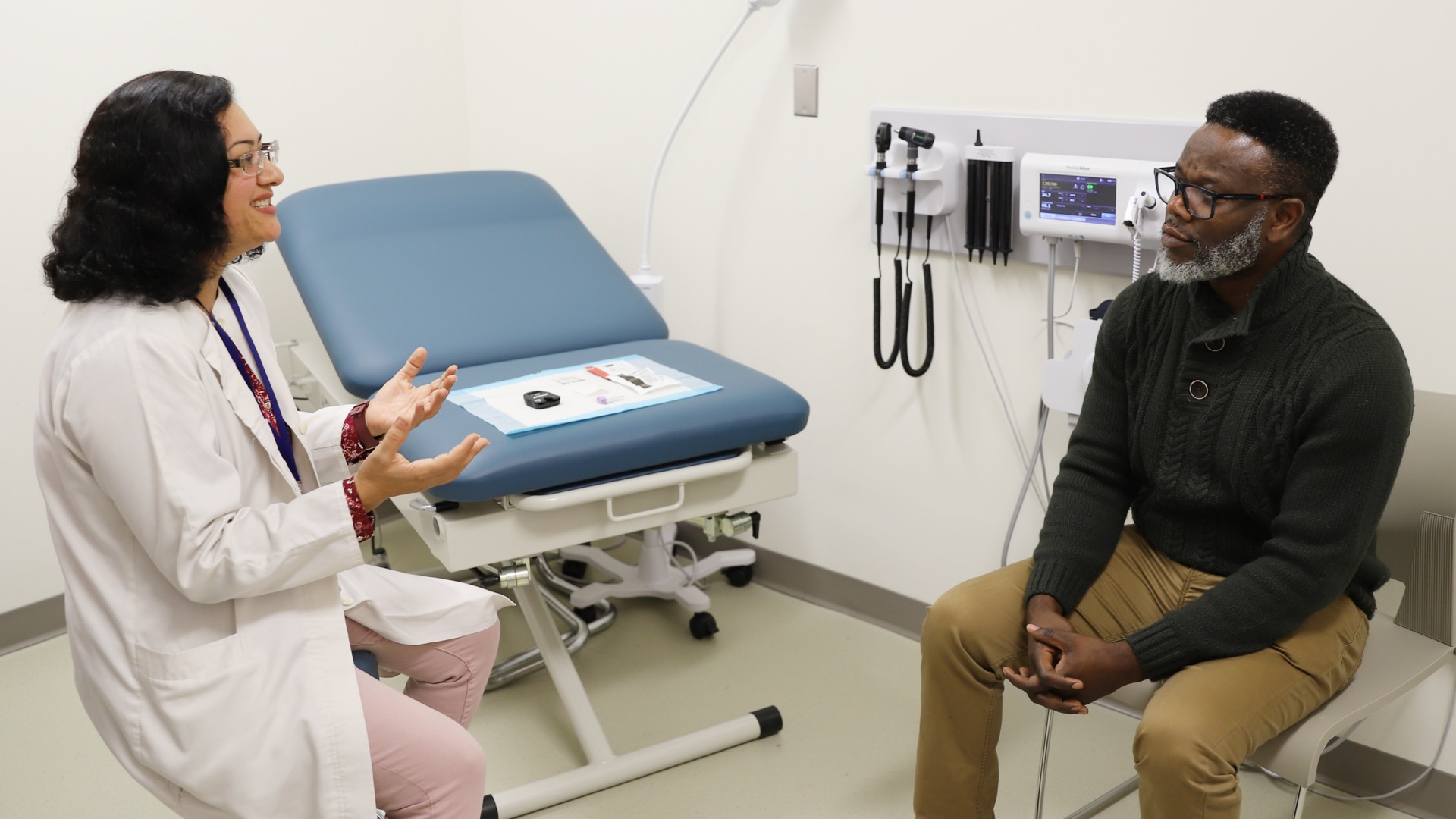Jump to information about:
Undergraduate Majors | Accelerated Bachelor's to Master's Programs | Undergraduate Minors
Majors

Community Health, BS
Protect the health and well-being of individuals, families, communities, and populations with your Bachelor of Science in Community Health from George Mason. You’ll explore all aspects of public health, including community health, global health, health education, health promotion, advocacy, program planning, and epidemiology.
Concentrations include: Global health, clinical science, nutrition, and physical activity and public health.
Career paths include: Pre-medicine; social service agencies; governmental and non-governmental health organizations; and health care delivery.
Total credits: 120

Health Administration, BS
Improve patient care from the leadership and administration side of the health care industry with your Bachelor of Science in Health Administration from George Mason. You’ll gain the strategic, business, analytical, and decision-making skills you’ll need to launch your management career in a variety of settings.
Concentrations include: Health systems management, and assisted living/senior housing administration.
Career paths include: health care consultant; health care recruiter; facility administrator; and health services manager.
Total credits: 120

Health Informatics, BS
Use data to positively impact individual and population health with your Bachelor of Science in Health Informatics from George Mason. You’ll learn how to effectively analyze complex health data, manage evolving health information systems, and support the increasing transition to electronic health records.
Career paths in this fast-growing industry include: Clinical information specialist; biostatistician; and health services manager.
Total credits: 120

Nursing, BSN
Learn to deliver superior nursing care and provide leadership in nursing with your Bachelor of Science in Nursing from George Mason. With a unique interprofessional lens, the program emphasizes health promotion and disease prevention and will teach you how to navigate the increasingly complex and challenging field of modern health care.
Career paths include: Public health nursing; critical care nursing; nurse educator; and researcher.
Total credits: 120

Social Work, BSW
Transform communities with the foundational social work skills you’ll gain in your Bachelor of Social Work from George Mason. By integrating classroom theory with field experiences, you’ll become skilled in the use of new technologies and in culturally sensitive, generalist social work practice.
Career paths include: Case management worker; crisis counselor; domestic violence prevention specialist; gerontology aid; and policy planning specialist.
Total credits: 120; 450 hours of supervised field practicum
Accelerated Bachelor's to Master's Programs
Highly-qualified undergraduates may be admitted to a bachelor's/accelerated master's program. The program allows you to obtain both degrees in an accelerated time-frame.
Minors
Aging Studies, Minor
The minor in aging studies focuses on the field of gerontology. Topics explore adult issues specifically related to aging with courses such as Introduction to Gerontology and Healthy Aging. Graduates with an educational background in aging are in great demand in today's public health workforce.
Total credits: 15
Food Systems, Minor
The minor in food systems will provide you with the knowledge and skills necessary to understand how factors of the food system affect the health of a community. Topics examine various aspects of the food system with courses such as Introduction to Nutrition and Fundamentals of Cooking.
Total credits: 15
Global Health, Minor
The minor in global health is designed to increase your awareness of the major health problems and issues that transcend national boundaries. Topics explore a variety of global health issues with courses such as Health and Disease and Fundamentals of Epidemiology.
Total credits: 18
Health Information Technology, Minor
The minor in health information technology will introduce you, in a nontechnical context, to the utilization of health information management. Topics delve into the current and projected role of health information management with courses such as Health Databases and Computer Programming in Health Applications.
Total credits: 18
Health and Social Policy, Minor
The minor in health and social policy will introduce you to the context and process for public policy making in health care and social services. Topics examine the current environment for health and social policy with courses such as health care Law and Child and Family Welfare.
Total credits: 18
Nutrition, Minor
The minor in nutrition will increase your knowledge of nutrition issues and complements degrees related to nutrition, health, education, and more. Courses include introductory, foundational nutrition topics; for example, Nutrition Throughout the Lifecycle and Food and Culture.
Total credits: 15
Public Health, Minor
The minor in public health will equip you with a broad and baseline understanding of the field. Topics explore various aspects of public health with courses such as Global Health and Health Behavior Theories.
Total credits: 18-19
Senior Housing Administration, Minor
The minor in senior housing administration will prepare you for administrative and managerial work within residential communities for older adults, including assisted living, continuing care retirement communities, and more. Topics explore various aspects of senior housing management with courses such as health care Ethics and Healthy Aging.
Total credits: 15
Social Work, Minor
The minor in social work will provide you with an introduction to the social work profession and social welfare, as well as professional values, ethics, fields of practice, and settings in which social workers are employed. Topics delve into various aspects of social work with courses such as Changing Social Policies and Systems and Legal and Ethical Issues in Human Services.
Total credits: 15




